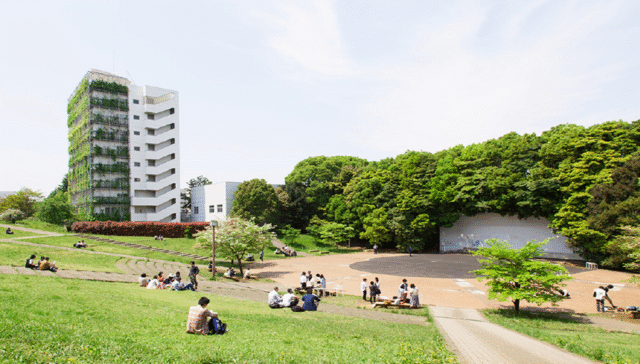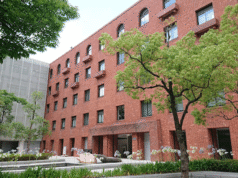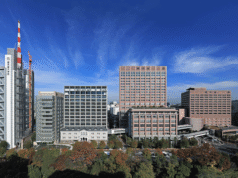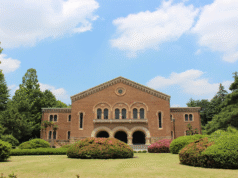Yokohama National University: Pioneering Practical Scholarship and Global Innovation
Introduction
Founded on a foundation that dates back to 1876 and formally chartered in 1949, Yokohama National University (YNU) has emerged as a leading national university in Japan. With a unique identity shaped by its port-city heritage, academic innovation, international engagement, and commitment to Sustainability Development Goals, YNU equips its students for global impact through multidisciplinary education, cutting-edge research, and strong corporate ties.
1. Establishment & History
- 1876: The predecessor, Yokohama Normal School, was established.
- 1949: YNU became a national university, merging Kanagawa Normal School, Kanagawa Youth Normal School, Yokohama College of Economics, and Yokohama Institute of Technology (Wikipedia, Wikipedia).
- Milestones:
- 1962: Master’s in Engineering
- 1967: Establishment of the College of Business Administration
- 1973: Faculty of Environmental Science and Technology
- 1990: Graduate School of International and Business Law
- 1999: International Graduate School of Social Sciences
- 2001: Formation of Graduate School of Environment and Information Sciences and reorganization of Engineering
- 2011: College of Engineering Science and Graduate School of Urban Innovation
- 2017: College of Education and College of Urban Sciences established; Professional School for Teacher Education launched
- 2018: Graduate School of Engineering Science formed
- 2021: YNU Interfaculty Graduate School of Innovative and Practical Studies established (ynu.ac.jp).
2. Affiliations & Strategic Position
- YNU is a member of the Port-City University League (PUL), forging global networks with port-city universities across the world (Wikipedia).
- Located in Yokohama, Japan’s second-largest city, YNU occupies the green and serene Tokiwadai campus, originally the site of Japan’s first 18-hole golf course (ynu.ac.jp).
3. Academic Structure: Courses Offered
Undergraduate Colleges
- College of Education
- College of Economics
- College of Business Administration
- College of Engineering Science
- College of Urban Sciences
(ynu.ac.jp).
A wide range of fields are offered—from Arts and Humanities to Engineering and Urban Sciences. A detailed breakdown by field is available via the YNU Undergraduate Fields page (ynu.ac.jp).
Graduate Schools
- Graduate School of Education
- Graduate School of International Social Sciences
- Graduate School of Engineering Science
- Graduate School of Environment and Information Sciences
- Graduate School of Urban Innovation
- Interfaculty Graduate School of Innovative and Practical Studies
(ynu.ac.jp).
Notably, all-English degree programs are available in disciplines like Engineering Sciences and within the YOKOHAMA Socrates Program, which offers bilingual (English/Japanese) instruction in social resilience and sustainability (global.ynu.ac.jp, gsiss.ynu.ac.jp).
4. Facilities & Campus Life
- YNU’s Tokiwadai Campus presents a park-like setting perfect for study, equipped with libraries, student centers, cafeterias, and support offices (ynu.ac.jp).
- The university emphasizes five key strengths: Research, Education, Location, Facilities and Support, Cost-effectiveness and Career Paths for students, especially international ones (ynu.ac.jp).
5. Address & Contact Information
- Campus Area: Situated in Hodogaya Ward, Yokohama—the Tokiwadai Campus is easily accessible via Yokohama’s efficient transport network (global.ynu.ac.jp).
- YNU maintains robust international admission and support services, including guidelines and application portals for English-taught programs (global.ynu.ac.jp, gsiss.ynu.ac.jp).
6. Academic Excellence
- In 2020, YNU was rated first in the Kanto & Koshin’etsu region and second in Japan overall by corporate HR departments, indicating strong graduate employability and academic reputation (Wikipedia).
- YNU fosters practical scholarship—balancing research output with real-world industry readiness, all set against a multicultural and globally oriented academic environment (ynu.ac.jp).
7. Career Development & Placement Support
- The university highlights “Career Paths” as a strategic advantage, supporting students with career counseling, internships, and industry collaborations (ynu.ac.jp).
- Informal testimonies from students suggest a welcoming international community and supportive environment when studying as part of exchange programs (Reddit).
8. Research Activities & Innovation
- YNU prominently features research, research centers, and international collaborations in its academic portfolio, encouraging advanced studies and global partnerships (ynu.ac.jp).
- With an emphasis on real-world applications, Urban Sciences, Engineering, and Sustainability-themed research are core priorities aligning with local and global societal challenges.
9. Scholarships & Fellowships
- YNU provides financial accessibility especially to international students. Support includes tuition waivers, targeted scholarships like the YNU60 Scholarship (¥300,000), and MEXT honor scholarships (¥48,000/month for six months) .
10. Notable Alumni
- Prominent alumni include:
- Ryue Nishizawa – Pritzker Prize-winning architect
- Sumio Mabuchi – Politician
- Akira Fujishima – Chemist and President of the University of Tokyo
- Masaya Nakamura – Founder of Namco (father of Pac-Man)
- Creators in arts and industry such as Hironobu Sakaguchi, Koshi Inaba, and more (Wikipedia).
- Distinguished faculty like Prof. Masayoshi Watanabe, recognized for groundbreaking work in polymer electrochemistry, highlight YNU’s research pedigree (Wikipedia).
- Hasegawa Yoshikazu, alumnus and noted paleontologist, underscores the university’s legacy in scientific research (Wikipedia).
11. Reputation, Rankings & Awards
- YNU’s high employer regard ranks it among Japan’s top non-7 national universities, demonstrating a strong blend of academic excellence and industry readiness (Wikipedia, Wikipedia).
- Its foundation in practical scholarship, internationalization, and research-led education continues to distinguish YNU as an innovation hub in higher education.
Conclusion
Yokohama National University stands as a compelling model of a modern, globally engaged, and practically oriented national university in Japan. With comprehensive academic offerings—from bilingual undergraduate programs to specialized graduate schools—strong campus infrastructure, and a remarkable balance of tradition and innovation, YNU excels in preparing students for impactful careers in global and regional contexts. Its reputation, alumni achievements, and career outcomes reflect the university’s long-standing commitment to practical scholarship, sustainability, and transformative education.
Summary Table
| Aspect | Highlights |
|---|---|
| Founded | 1876 (predecessor), 1949 (chartered national university) |
| Colleges | Education; Economics; Business; Engineering Science; Urban Sciences |
| Graduate Schools | Education; International Social Sciences; Engineering; Environment & Info Sci; Urban Innovation; Interfaculty Graduate School |
| International Focus | English-taught programs, Socrates Program, Global visibility |
| Research & Innovation | Strong R&D centers, practical research engagement |
| Scholarships | YNU-specific, MEXT, tuition waivers, support for international students |
| Alumni | Architects, politicians, scholars, tech founders, and research leaders |
| Reputation | High HR rating, practical orientation, global outlook |
Yokohama National University admission requirements, YNU scholarship opportunities for international students, Yokohama National University campus facilities, study engineering at Yokohama National University, YNU postgraduate programs in Japan, Yokohama National University global ranking, YNU research and innovation, Yokohama National University application process for foreigners














